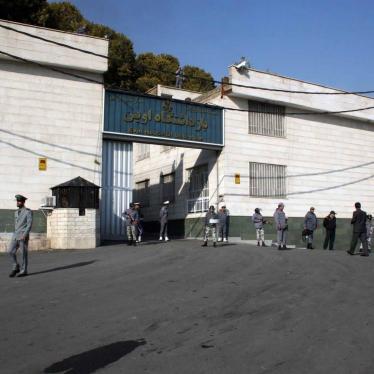The present global turmoil has intensified the debate over whether pursuing justice in fragile and transitional countries leads to instability. Yet Yemen has been brought to the brink of collapse at least in part by a failure to pay heed to demands for justice. Yemen's political class, with the tacit support of the main regional actors, may have helped bring about the country's instability, chaos and escalating violence.
The Houthis staged an apparently successful coup in Yemen after months of careful groundwork. The once-marginalized northern Zaidi Shia group, now at the head of a well-organized and rapidly expanding insurgency, prefers to be called Ansar Allah. Ansar Allah fighters stormed the presidential palace on January 20 without major bloodshed. On January 22, the government of President Abdu Rabbu Mansour Hadi resigned, leaving Ansar Allah in de facto control.
Former president Ali Abdullah Saleh, who was forced to step down after more than three decades in power as a result of Yemen's 2011 uprising, played a vital role in securing the tribal alliances that allowed Ansar Allah's fighters to leave Saada, their northern stronghold, and occupy Sanaa, the capital, last September. People close to the events have told me that Saleh was also pivotal in ensuring that Yemen's armed forces did not oppose Ansar Allah when it seized Sanaa in September or surrounded the presidential palace in January.
The 2011 uprising ended when, in a Gulf Cooperation Council (GCC) initiative, Saleh handed over power to Hadi, the vice president. In return, Saleh received blanket immunity from prosecution for crimes during his 33-year rule. The agreement also shielded his aides from prosecution for "political crimes" that did not constitute terrorist acts.
Despite the agreement, adopted into law in September 2012, Hadi decreed the creation of an independent commission of inquiry to investigate alleged rights abuses committed during the uprising, when government security forces killed scores of protesters. The commission was to recommend measures to hold those responsible to account and recommend redress to victims, but it was never created.
During the transition period after Saleh's removal, the UN stipulated that the government should take "steps aimed at achieving national reconciliation and transitional justice, and measures to ensure that violations of human rights and humanitarian law do not occur in future." In response, the departing Hadi government's legal affairs minister had drafted a transitional justice law—but it is unlikely to be adopted any time soon.
The government was not alone in shirking justice. As part of the transitional process, Yemen held a 10-month long National Dialogue Conference (NDC) that brought together many segments of society, with nine working groups, including one on transitional justice. But it could agree only a weak declaration due to the influence of Saleh's General People's Congress party. The best the Dialogue Conference could come up with was: "Human rights violators shall not elude accountability in accordance with the mechanisms defined by the transitional justice law"—hardly a ringing demand for justice.
Moreover, the final Dialogue Conference report, published January 2014, stated that its recommendations "cannot contradict the GCC Initiative and its executive mechanism and its principles and cannot contradict with UN Security Council resolutions 2014 and 2051"—presumably including the immunity from prosecution for Saleh and his associates.
No further steps were taken in 2014 to address past—or continuing—human rights abuses. Since he relinquished the presidency in 2011, Saleh has been able to remain in Sanaa and lead his party, which still has a majority of parliamentary seats and wields considerable power. Saleh's interference in the transitional arrangements led the UN Security Council to impose sanctions on him, as well as on two Ansar Allah commanders, in November, including a global travel ban and asset freezes. Hadi moved some Saleh relatives linked to abuses from their earlier posts, but gave them new ones.
Had there been further steps for justice, including domestic criminal investigations, they may have stigmatized Saleh and peeled away his legitimacy. In other countries, steps toward prosecuting current or former leaders implicated in widespread abuses have severely diminished their political influence.
While the diplomatic community has paid lip service to the need for justice, accountability and transparency, in private most foreign envoys have given priority to short-sighted notions of national interest and stability over public debate on individual rights. I have had meeting after meeting with foreign diplomats who insisted that Human Rights Watch's continued criticism of the immunity law and its calls for accountability, were—as one put it—tantamount to asking to "engulf Yemen in flames."
The sad reality now is that Yemen has become "engulfed in flames"—and things could get worse. Had Saleh and his cronies been made to stand trial for their alleged wrongdoings, rather than given a squalid "get out of jail free card," it is hard to believe that he would have retained the political capital he has used to such destabilizing effect. Of course, the failure to bring Yemen's most powerful rights abusers to justice is not the sole driver of instability and conflict, and there have been many other contributing factors. But the positive impact of pursuing justice is often given short shrift when weighing competing factors in resolving conflicts. At least, as far as Yemen is concerned, there seems little doubt that Saleh has been the main beneficiary of the Yemeni government's failure—supported by influential allies—to address impunity.
Yemen is certainly not the first country where ignoring atrocities has reinforced a culture of impunity. Afghanistan, the Democratic Republic of Congo, Bosnia and Herzegovina, Sierra Leone, Angola and Sudan, are just a few examples. Human Rights Watch has documented the unwelcome repercussions that can stem from the decision to overlook serious international crimes and include those implicated in human rights abuses in new governmental power structures in an effort to consolidate peace. These can include encouraging an atmosphere of mistrust and revenge that leaders can later manipulate to foment violence for their own political ends.
Apart from the political argument in favor of effective transitional accountability mechanisms, one also must never forget the more fundamental issue—that justice is important as a matter of principle, a key element of the rule of law.
In the short-term, it is easy to understand the temptation to forego justice in an effort to end armed conflict. Some politicians argue that the path to peace is more realistic and immediate if we don't hold abusers to account. However, Yemen is yet another reminder that a decision to ignore atrocities and to reinforce a culture of impunity may carry a high price.









